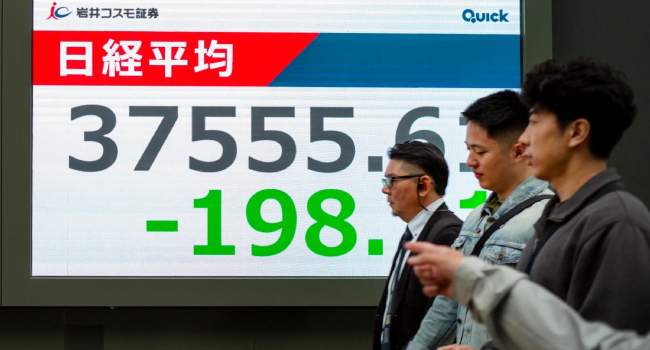
Asian markets climbed on Tuesday, regaining ground after a Moody’s-driven dip in U.S. markets the previous day, with investor sentiment buoyed by historic interest rate cuts from China and easing trade tensions between the U.S. and China.
The rally mirrored gains on Wall Street, where initial losses triggered by Moody’s downgrade of the U.S. credit rating were reversed as investors returned to undervalued equities, hopeful about the progress in U.S.-China trade negotiations.
Following U.S. President Donald Trump’s disruptive tariff announcement on April 2, last week’s breakthrough deal between Washington and Beijing—featuring significant reductions in retaliatory levies—has restored confidence in global markets. Most indices have rebounded to pre-“Liberation Day” levels, a reference to Trump’s imposition of sweeping duties.
Trump has suspended the most severe tariffs for 90 days, expiring in mid-July. While few binding agreements have been finalized, markets are optimistic that the worst of the trade crisis is over.
Investor sentiment is also supported by expectations that the U.S. Federal Reserve may cut interest rates this year, with Bloomberg projecting two rate reductions. However, some central bank officials remain cautious. New York Fed President John Williams signaled that any policy shift may be delayed until at least September, while Vice Chair Philip Jefferson emphasized the importance of avoiding entrenched inflation, calling for patience.
Early trading saw widespread gains across Asia, with Hong Kong, Shanghai, Tokyo, Sydney, Seoul, Singapore, Taipei, Wellington, and Jakarta all in positive territory.
Markets were further lifted by the People’s Bank of China’s decision to lower two key interest rates in a bid to revive an economy grappling with sluggish consumer demand, a prolonged property debt crisis, and high youth unemployment. The one-year Loan Prime Rate (LPR) was reduced from 3.1% to 3.0%, while the five-year LPR, which influences mortgage rates, was cut from 3.6% to 3.5%. Both are now at record lows, following similar cuts in October.
“These rate cuts will ease debt burdens for existing borrowers and lower the cost of new credit,” said Zichun Huang, China economist at Capital Economics. However, she cautioned that the modest reductions are “unlikely to meaningfully boost loan demand or wider economic activity,” adding that further cuts are likely this year.
The announcement followed disappointing retail sales data for April, which underlined persistent weakness in consumer confidence.
In a notable corporate debut, Chinese battery giant CATL surged over 13% on its Hong Kong IPO, raising $4.6 billion in the world’s largest listing of the year. The company, which manufactures over a third of the world’s electric vehicle batteries, drew strong investor demand despite being labeled a “Chinese military company” by the U.S. in January. The designation prompted the U.S. House Select Committee on the Chinese Communist Party to pressure JPMorgan and Bank of America to exit the deal—yet both banks remained involved.
Key Market Figures (as of 02:30 GMT):
- Tokyo (Nikkei 225): +0.5% at 37,691.56
- Hong Kong (Hang Seng Index): +1.0% at 23,568.99
- Shanghai (Composite): +0.2% at 3,373.52
Currencies:
- Euro/Dollar: $1.1243 (down from $1.1244)
- Pound/Dollar: $1.3363 (up from $1.3360)
- Dollar/Yen: 144.84 (down from 144.87)
- Euro/Pound: 84.15 pence (up from 84.14 pence)
Commodities:
- WTI Crude: +0.2% at $62.82 per barrel
- Brent Crude: –0.1% at $65.46 per barrel
Major Indices (Previous Close):
- Dow Jones (New York): +0.3% at 42,792.07
- FTSE 100 (London): +0.2% at 8,699.31
